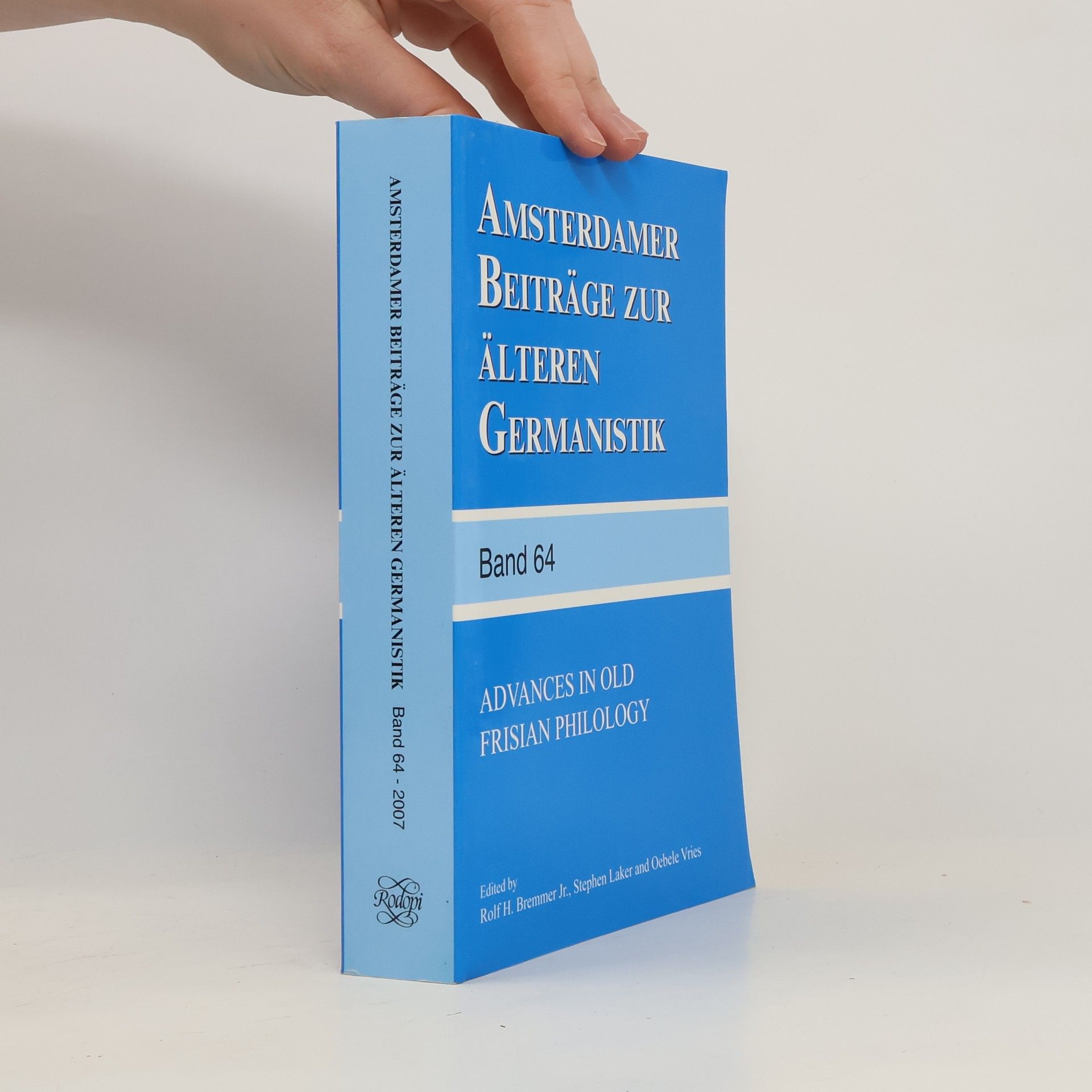Like its two predecessors, Aspects of Old Frisian Philology (1990) and Approaches to Old Frisian Philology (1998), Advances in Old Frisian Philology combines contributions by specialists of medieval Frisian studies with papers by international specialists from adjacent fields who have been invited for the occasion to bring their expertise to the discipline of Old Frisian. Together, the diverse approaches considerably advance our knowledge of and insight into various aspects of Old Frisian philology.
Rolf H. Bremmer Knihy
